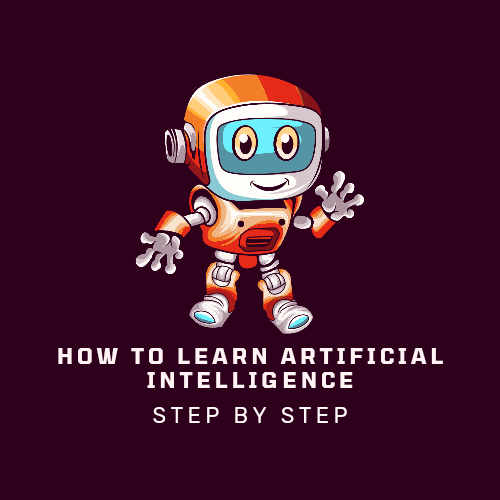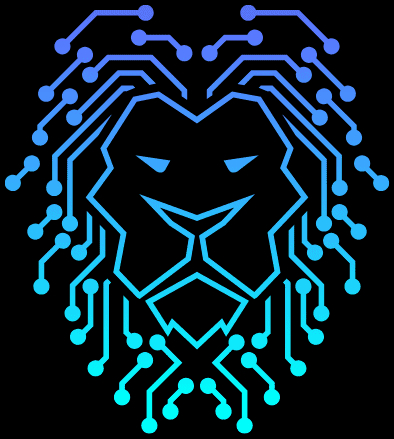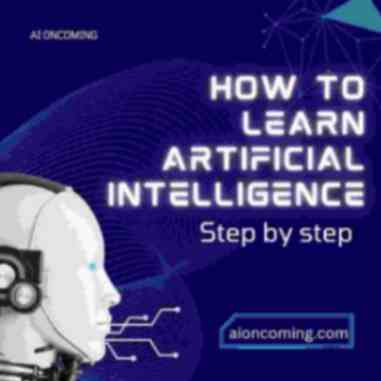A Beginner’s Guide how to Learn Artificial Intelligence step by step with our beginner’s guide Understand the basics and take online courses. Get hands-on by doing projects and join AI communities for support. Follow thought leaders, stay updated, and remember, continuous learn Artificial Intelligence is the key to mastering AI.
In a rapidly evolving technological landscape, the allure of artificial intelligence (AI) is undeniable. For beginners eager to delve into this cutting-edge field, the journey may seem daunting, but fear not—with the right approach, mastering AI is within reach.
Artificial Intelligence Learning: A Game-Changer in the Digital Era
In the fast-paced world of technology, the importance of artificial intelligence (AI) learning cannot be overstated. AI learning empowers machines to adapt, evolve, and perform tasks without explicit programming. This SEO-friendly article explores the pivotal role of AI learning in shaping our digital landscape.
1. Unleashing Unprecedented Efficiency
AI learning enables machines to continually refine their performance, leading to unparalleled efficiency. Algorithms learn from data, identify patterns, and optimize processes, streamlining operations across industries.
2. Smart Decision-Making
With AI learning, machines can make intelligent decisions based on data analysis. This not only enhances decision-making speed but also ensures precision, reducing the margin of error in critical tasks.
3. Personalizing User Experiences
In the realm of customer interactions, AI learning tailors experiences by understanding user preferences. Whether it’s recommending products, curating content, or anticipating needs, AI ensures personalized interactions that resonate with individuals.
4. Revolutionizing Healthcare
AI learning is a game-changer in healthcare, aiding in diagnostics, drug discovery, and personalized treatment plans. By analyzing vast amounts of medical data, AI contributes to more accurate diagnoses and innovative healthcare solutions.
5. Enhancing Cybersecurity
The evolving nature of cyber threats requires sophisticated defenses. AI learning excels at identifying and responding to potential security risks in real-time, fortifying digital systems against cyber attacks.
6. Driving Innovation
AI learning fuels innovation by automating routine tasks, allowing human resources to focus on creative and strategic endeavors. This dynamic contributes to the development of groundbreaking technologies and solutions.
7. Sustainable Growth
By optimizing resource utilization and reducing inefficiencies, AI learning plays a crucial role in promoting sustainable practices. Industries adopting AI technologies contribute to environmentally conscious operations.
In the era of AI, learning is transformative, ushering in a new wave of possibilities across diverse sectors. Embracing this technology isn’t just a choice; it’s a strategic imperative for businesses and industries aiming to thrive in the digital age. Stay ahead of the curve, harness the power of AI learning, and witness the remarkable evolution of our interconnected world.

The best way to learn artificial intelligence for a beginner
1. Foundational Understanding for Learn Artificial Intelligence
Embrace the Basics To build a solid AI foundation, start by grasping the basics of mathematics, particularly linear algebra and calculus. These concepts serve as the building blocks for understanding algorithms and models fundamental to AI.
2. Programming Proficiency for Learn Artificial Intelligence
Choose Your Language Gain fluency in programming languages crucial to AI development. Python, with its simplicity and extensive libraries, stands out as a popular choice. Familiarize yourself with frameworks like TensorFlow and PyTorch, which simplify the implementation of AI algorithms.
3. Online Courses for AI Learning
Learn from the Experts Leverage online courses from reputable platforms like Coursera, edX, and Udacity. Courses such as Andrew Ng’s “Machine Learning” and the “Deep Learning Specialization” provide comprehensive insights, guiding beginners through essential AI concepts.
4. Hands-On Projects
Apply Theoretical Knowledge Theoretical knowledge alone won’t suffice; practical application is key. Engage in hands-on projects, such as creating a basic machine learning model or developing a chatbot. Platforms like Kaggle offer real-world datasets for honing your skills.
5. Community Engagement
Join AI community by joining forums like Stack Overflow, Reddit’s r/Machine Learning, and AI conferences. Networking with seasoned professionals and fellow learners enhances your understanding and provides valuable insights.
6. Books for Learn Artificial Intelligence
Open Your Understanding Explore authoritative AI literature to gain deeper insights. Books like “Hands-On Machine Learning with Sprinkler, Keras, and TensorFlow” by Aurélien Géron and “Artificial Intelligence: A Modern Approach” by Stuart Russell and Peter Norvig are invaluable resources.
7. Stay Updated
Follow AI Trends Given the rapid advancements in AI, staying updated is crucial. Subscribe to reputable AI blogs, attend webinars, and follow industry experts on social media to stay abreast of the latest trends and innovations.
8. Capstone Projects
Showcase Your Skills Undertake capstone projects that showcase your acquired skills. A well-executed project in your portfolio can be a powerful testament to your capabilities and attract potential employers or collaborators.
9. Join Online AI leaning Communities
Seek Guidance Engage with online communities like GitHub, where you can access open-source AI projects and seek guidance from experienced developers. Collaborative learning fosters growth and widens your perspective.
10. Continuous Learning
The Journey Never Ends Understand that AI is a dynamic field, and continuous learning is essential. Embrace challenges, experiment with new concepts, and remain curious. The journey to mastering AI is an ongoing process.
11. Specialize Your Focus AI
Choose an AI DomainAs you advance, consider specializing in a specific AI domain, such as computer vision, natural language processing, or reinforcement learning. Tailoring your expertise enhances your marketability and allows you to contribute more deeply to specific applications.
12. Participate in Hackathons
Sharpen Your Skills Engage in AI hackathons to test your skills in a competitive environment. These events provide an opportunity to collaborate with peers, solve real-world problems, and receive feedback from industry professionals.
13. Seek Mentorship
Learn from Experienced Professionals Connect with experienced AI professionals who can offer guidance and insights. Mentorship accelerates your learning, provides valuable advice, and opens doors to opportunities you might not discover on your own.
14. Contribute to Open Source
Enhance Collaboration Contribute to open-source AI projects on platforms like GitHub. This not only allows you to work on meaningful projects but also exposes you to collaborative development practices and the broader AI community.
15. Explore Online Competitions
Test Your Mettle Participate in AI competitions like Kaggle challenges. These contests push your boundaries, expose you to diverse problem-solving approaches, and often involve solving real-world problems posed by companies and organizations.### 16. Form Study Groups: Foster Peer Learning Join or create study groups with fellow AI enthusiasts. Collaborative learning enhances your understanding, allows for knowledge exchange, and provides motivation during challenging phases of your AI journey.
17. Enroll in Advanced Courses
Master Advanced Concepts Once you’ve established a strong foundation, consider enrolling in advanced courses covering topics like deep learning, neural networks, and AI ethics. Continuous education ensures you stay at the forefront of AI advancements.
18. Attend Conferences
Immerse Yourself in the Community Attend AI conferences and workshops to immerse yourself in the industry’s latest developments, connect with experts, and gain exposure to groundbreaking research. Events like NeurIPS and ICML offer valuable networking opportunities.
19. Build a Portfolio
Showcase Your Achievements
Develop a professional portfolio highlighting your projects, achievements, and the impact of your work. A well-crafted portfolio is a powerful tool when applying for jobs or collaborating on AI initiatives.
20. Stay Ethical
Prioritize Responsible AI Practices As you advance in your AI journey, prioritize ethical considerations. Understand the ethical implications of AI applications and strive to contribute to the development of responsible and transparent AI solutions.
21. Build a Professional Network
Connect with Industry Professionals Actively network with professionals in the AI industry through platforms like LinkedIn. Join relevant groups, participate in discussions, and attend networking events to build meaningful connections that can offer insights and potential opportunities.
22. Teach Others
Solidify Your Understanding Share your knowledge by teaching others. Whether through blogging, creating tutorials, or mentoring, explaining concepts to others solidifies your understanding and contributes to the broader AI learning community.
23. Explore Online Resources
Diversify Your Learning Expand your learning resources beyond courses and books. Explore AI podcasts, webinars, and YouTube channels hosted by industry experts. Diversifying your sources keeps you informed about various perspectives and emerging trends.
24. Stay Agile
Adapt to Changing Technologies The field of AI is dynamic, with constant technological advancements. Stay agile by being open to learning new tools, frameworks, and methodologies. Adaptability is a key trait in the ever-evolving landscape of AI.
25. Collaborate on Research Projects
Contribute to Advancements Engage in research collaborations, either through academic institutions or industry partnerships. Contributing to research projects allows you to delve deeper into specific areas of AI and be a part of advancing the field.
26. Contribute to AI Communities
Actively contribute to AI communities by answering questions, sharing insights, and collaborating on projects. Being an active member showcases your expertise and establishes you as a valuable participant in the AI ecosystem.
27. Join Online Courses with Practical AI Components
Apply Learning Choose online courses that include practical components, such as building real-world projects. This hands-on approach enhances your problem-solving skills and reinforces theoretical concepts through practical application.
28. Consider Advanced Degrees
Pursue Higher Education For those seeking in-depth knowledge, consider pursuing advanced degrees in AI-related fields. Master’s or Ph.D. programs provide a structured environment for research and specialization.
29. Stay Healthy
Balance Work and Well-being Ai learning can be intense, so prioritize your well-being. Maintain a healthy work-life balance, take breaks, and engage in activities that rejuvenate your mind. A healthy mind is more adept at grasping complex concepts.
30. Contribute to AI for Social Good
Make an Impact Explore opportunities to apply AI for social good. Contributing to projects with a positive impact on society not only adds purpose to your work but also showcases the potential of AI to address pressing global challenges.
31. Stay Humble
Embrace Continuous Humility AI is vast and ever-evolving, so adopt a humble mindset. Acknowledge that there is always more to learn, and be open to feedback. Humility fosters a growth-oriented mentality crucial for long-term success in AI.
32. Follow Thought Leaders
Stay Inspired Follow thought leaders and researchers in the AI field. Reading their publications, following their work, and staying updated on their insights can provide inspiration, keep you informed, and guide your own learning journey.
33. Experiment with Cloud Services
Explore Scalability Familiarize yourself with cloud services like AWS, Azure, or Google Cloud. Understanding how to leverage cloud infrastructure for AI projects not only enhances scalability but also aligns with industry practices.
34. Attend Workshops
Enhance Practical SkillsAttend hands-on workshops that focus on practical AI applications. Workshops often provide a deep dive into specific tools and techniques, allowing you to enhance your practical skills under expert guidance.
35. Subscribe to Research Journals
Stay InformedSubscribe to reputable AI research journals and publications. Regularly reading research papers exposes you to the latest breakthroughs, methodologies, and theoretical advancements in the academic landscape of AI.
36. Build a Personal Brand
Showcase Your Expertise Establish a personal brand by showcasing your AI expertise online. Create a professional website, share your projects on platforms like GitHub, and write blogs or articles to demonstrate your knowledge and skills to a broader audience.
37. Dabble in Reinforcement Learning
Explore Dynamic EnvironmentsmExplore reinforcement learning, a subfield of AI focusing on decision-making in dynamic environments. Understanding RL principles adds a valuable dimension to your skill set and opens doors to applications in robotics, gaming, and more.
38. Stay Connected with Industry Trends
Monitor Market DevelopmentsRegularly monitor industry trends and market developments in AI. Being aware of the demand for specific skills or emerging technologies helps you tailor your learning path to align with current industry needs.
39. Explore AI in Different Industries
Broaden Your Perspective Broaden your understanding of AI applications by exploring how they are employed in various industries. Whether it’s healthcare, finance, or agriculture, understanding diverse use cases enhances your versatility as an AI practitioner.
40. Contribute to Diversity and Inclusion
Foster an Inclusive Community Actively contribute to promoting diversity and inclusion in the Artificial Intelligence community. Support initiatives that aim to create a more inclusive environment for individuals of all backgrounds to thrive and contribute to the field.
FAQ
Q: What is Artificial Intelligence (AI)?
Artificial Intelligence refers to the development of computer systems that can perform tasks that typically require human intelligence, such as learning, problem-solving, and decision-making.
Q: How can I start learning Artificial Intelligence?
Begin with foundational concepts like machine learning, data science, and programming languages such as Python. Explore online courses, tutorials, and practical projects to build hands-on experience.
Q: What programming languages are important for Artificial Intelligence?
Python is widely used in AI due to its simplicity and a rich ecosystem of libraries like TensorFlow and PyTorch. Other languages include R, Java, and Julia.
Q: What is the difference between Artificial Intelligence, machine learning, and deep learning?
Artificial Intelligence is the broader concept of machines mimicking human intelligence. Machine Learning (ML) is a subset of AI that focuses on systems learning from data. Deep Learning is a specialized form of ML using neural networks with many layers.
Q: Can you recommend books for Artificial Intelligence beginners?
“Artificial Intelligence: A Modern Approach” by Stuart Russell and Peter Norvig, and “Python Machine Learning” by Sebastian Raschka are good starting points.
Q: Are there any free online courses for learning AI?
Yes, platforms like Coursera, edX, and Khan Academy offer free AI courses. Popular ones include Andrew Ng’s “Machine Learning” on Coursera.
Q: What skills are essential for an AI career?
Proficiency in programming, understanding of algorithms, statistics, and a strong grasp of linear algebra are crucial. Communication and problem-solving skills are also valuable.
Q: How can I gain practical experience in AI?
Work on projects, participate in Kaggle competitions, and contribute to open-source projects. Building a portfolio showcasing your work is key.
Q: What are the current trends in AI?
Trends include explainable AI, reinforcement learning advancements, AI ethics, and the integration of AI with other technologies like edge computing and IoT.
Q: Is a formal education necessary for a career in Artificial Intelligence?
While a formal education can be beneficial, many successful Artificial Intelligence professionals have self-taught skills. Practical experience and a strong portfolio are often equally important.Remember to stay updated with the evolving field and continuously refine your skills.
Remember, the path to learn artificial intelligence is a unique and dynamic journey. Embrace challenges, be persistent, and relish the continuous learning experience. Whether you aim to contribute to groundbreaking research or implement Artificial Intelligence solutions in practical scenarios, your dedication and passion will undoubtedly shape the future of this transformative field.
Ajaz Abbas


3 thoughts on “40 Ways How to Learn Artificial Intelligence Step by Step”